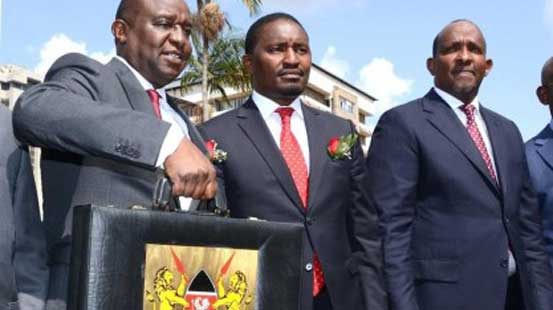×
The Standard e-Paper
Join Thousands Daily

NAIROBI, KENYA: The Institute of Certified Public Accountants is urging national policy makers to turn to alternatives in funding the gap in the budget to avoid soaking in debt.
Addressing the press at the 26th Economic Symposium that was convened by ICPAK, the statutory body of accountants in the country, the lobby's Chairman Julius Mwatu said that the appetite for more debt should be trimmed.